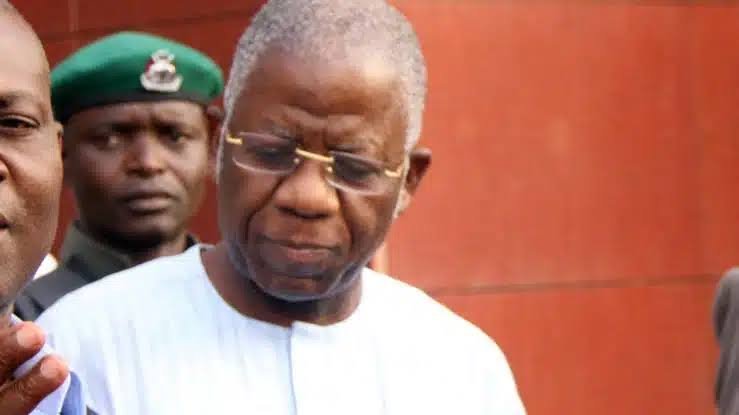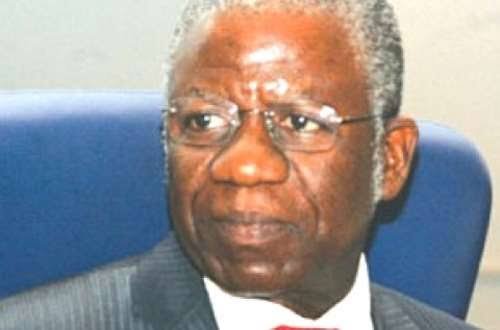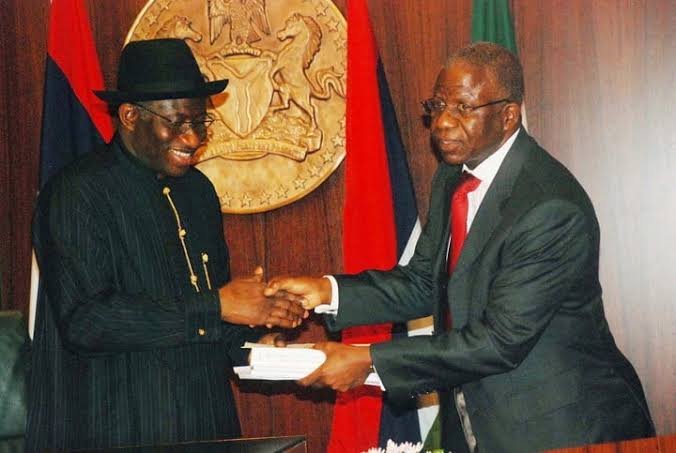Who is Stephen Oronsaye? – Read his profile

In this piece, Platinum Times Nigeria writes on a brief profile of Stephen Oronsaye
Stephen Osagiede Oronsaye is a Nigerian accountant and civil servant who became Head of the Federation’s Civil Service in June 2009. He launched an aggressive reform campaign shortly after his appointment. He retired on November 16, 2010, at the age of 60, and Oladapo Afolabi succeeded him.
|
Stephen Osagiede Oronsaye
|
|
|---|---|
| Born | 16 November 1950 (age 73)
Lagos
|
| Nationality | Nigerian |
| Occupation | Accountant |
| Known for | Former Head of the Nigerian Civil Service |
Background
Stephen Osagiede Oronsaye was born in Lagos on November 16, 1950. His parents were from Uhunmwonde and Oredo Local Council Areas in Edo State. Oronsaye schooled at Peat Marwick Cassleton Elliot (1973-1978) and became a Chartered Accountant in 1978.

In 1989, he became a partner in the firm. He began working for the Federal Ministry of Finance in December 1995 as Director, Special Duties. Oronsaye was in charge of merging the Administrative and Accounting operations of the State House offices, computerizing the State House’s processes and procedures, personnel records, accounts, and office access restrictions.
In 1999, he was named Principal Secretary to President Olusegun Obasanjo, a position similar to Federal Permanent Secretary. He was confirmed as Permanent Secretary at State House, an unusual appointment given that he was not a civil servant. In 2006, Oronsaye chaired the group that reviewed the Civil Service Rules and Financial Regulations. He was appointed Permanent Secretary of the Federal Ministry of Finance on August 20, 2008.

….His Time as Head of Civil Service
Stephen Oronsaye was appointed Head of the Nigerian Civil Service in June 2009.
Soon after his appointment, Stephen Oronsaye and Ahmed Al-Gazali, head of the Federal Civil Service Commission, implemented a new tenure policy that limited the mandates of permanent secretaries and directors to eight years. As a result, nine permanent secretaries were forced to retire in October 2009, and numerous directors were set to leave in January 2010.

In November 2009, Stephen Oronsaye informed the newly appointed permanent secretaries that they would be subject to ongoing evaluation and that their employment could be terminated at any time due to poor performance.
However, he reiterated that civil officials’ mandatory retirement age will remain the earlier of 60 years of age or 35 years of pensionable service.
Following the Central Bank of Nigeria’s decision to remove the boards of five banks and publish a list of debtors, Stephen Oronsaye urged Permanent Secretaries in August 2009 to prevent ministries, departments, and agencies from withdrawing funds or canceling accounts in these banks.
Earlier that month, Stephen Oronsaye ordered a substantial restructure, assigning nearly half of the Permanent Secretaries to new departments.[10]
In November 2009, he ordered that televisions be removed from all Civil Service offices on the grounds that watching television during work hours reduces productivity.
Also in November 2009, he announced that he had discussed wage increases for federal civil officials with President Umaru Yar’Adua.
In December 2009, he announced intentions to train 4,600 federal servants by March 2010 to prepare them for the increased challenges brought on by the new tenure policy, as well as to eliminate civil service stagnation.
Stephen Oransanye report
President Bola Tinubu announced that the suggestions made in the Stephen Oransanye report on overhauling Nigeria’s federal agencies, which was submitted 12 years ago should be implemented.

The 2011 report, commissioned by then-President Goodluck Jonathan, advocated for the consolidation, merger, or elimination of various unnecessary and inefficient government parastatals.
